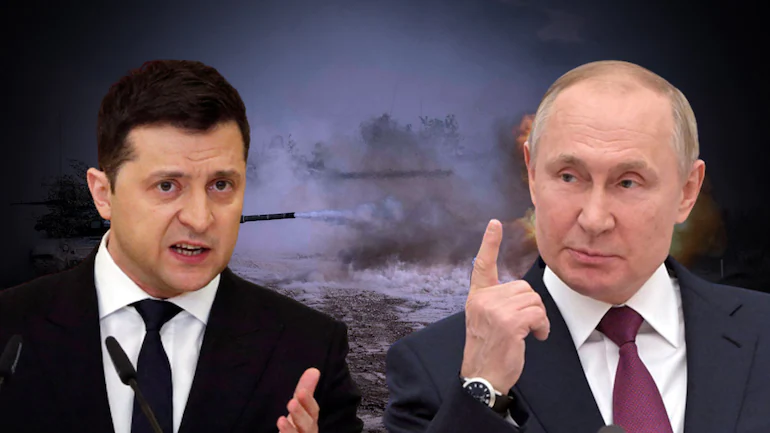Friday marks 100 days since Russia’s invasion of Ukraine. The sombre milestone came as Kyiv announced Moscow was now in control of a fifth of Ukrainian territory, including Crimea and parts of the Donbas seized in 2014. Since Russia’s February 24 invasion, thousands of people have been killed and millions forced to flee. On the battlefield, up to 100 Ukrainian soldiers are dying every day, according to the Ukrainian leader.
Despite a slower than expected advance, Moscow’s forces are making progress — President Volodymyr Zelensky told Luxembourg lawmakers about 20 per cent of Ukrainian territory was now in Russian hands.
After being repelled from around the capital, President Vladimir Putin’s troops have set their sights on capturing eastern Ukraine, prompting warnings the war could drag on. Following White House talks with US President Joe Biden, NATO chief Jens Stoltenberg warned Thursday that Ukraine’s allies needed to brace for a gruelling “war of attrition.” Street battles are raging in the industrial hub of Severodonetsk in Lugansk, part of the Donbas. Russia already controls about 80 percent of the strategic city but its defenders are putting up stiff resistance, with Lugansk regional governor Sergiy Gaiday vowing Ukrainian forces will fight “until the end.”
Led by the United States, Western nations have pumped arms and military supplies into Ukraine to help it survive the onslaught. Bridget Brink, the new US ambassador to Kyiv, promised Thursday that the United States would “help Ukraine prevail against Russian aggression,” after presenting her credentials to Zelensky.
Earlier this week, the United States announced that it was sending more advanced Himar multiple rocket launch systems to Ukraine. The mobile units can simultaneously fire multiple precision-guided munitions at targets up to 80 kilometres away.
Kremlin spokesman Dmitry Peskov accused Washington of “adding fuel to the fire,” although US officials insist Ukraine has promised not to use them to strike inside Russia.
Beyond sending arms to Ukraine, Western allies have also sought to choke off Russia’s financial lifeline in a bid to get Putin to change course. On the other hand, Russia warned that European consumers would be the first to pay the price for the partial oil embargo.
Ramping up an already long list of embargoes, the United States blacklisted Putin’s money manager and a Monaco company that provides luxury yachts to Moscow’s elite. Across the Atlantic, EU nations agreed new sanctions that would halt 90 percent of Russian oil imports to the bloc by the end of the year.
The war also risks triggering a global food crisis, as Ukraine is one of the world’s top grain producers. It has already been translating into higher costs for essentials from cereals to sunflower oil to maize, with the poorest among the hardest hit. The head of the African Union, Senegalese President Macky Sall, is to visit Russia on Friday for talks with Putin.
Also Read: United States Sanctions On Russian Diamonds Impacts Surat Polishers













